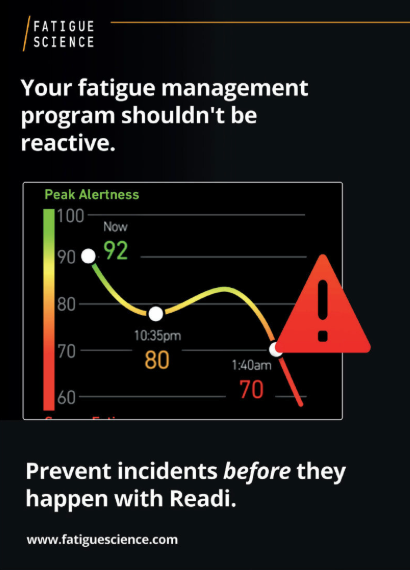Updated September 28, 2020
The long-term impact of sleep deprivation on employees is real and tangible. It is estimated that sleep problems cause 13% of work injuries. An accumulation of sleep debt can lead to:
- Less energy
- Lower cognitive function
- Reduced productivity
- Decreased ability to cope with stress
The infographic below from the Centers for Disease Control and Prevention and the National Institute for Occupational Safety and Health demonstrates the risks that exist when employees do not get enough sleep. These risks are especially high in industries such as mining that see more worked hours, longer shifts, and increased shift work.

Fatigued workers contribute to on the job errors, affecting an organization’s performance, safety and bottom line. What are you doing to address fatigue in your workforce?
Fatigue Science’s Readi™ Enterprise Suite gives workers and managers the tools to identify and reduce fatigue risks. With Readi, workers can self-manage their fatigue to build better sleep habits. An anonymized view of this data allows managers to plan high-risk work while maintaining worker privacy.
Contact a member of our sales team to learn more about reducing the fatigue risks in your workplace.




